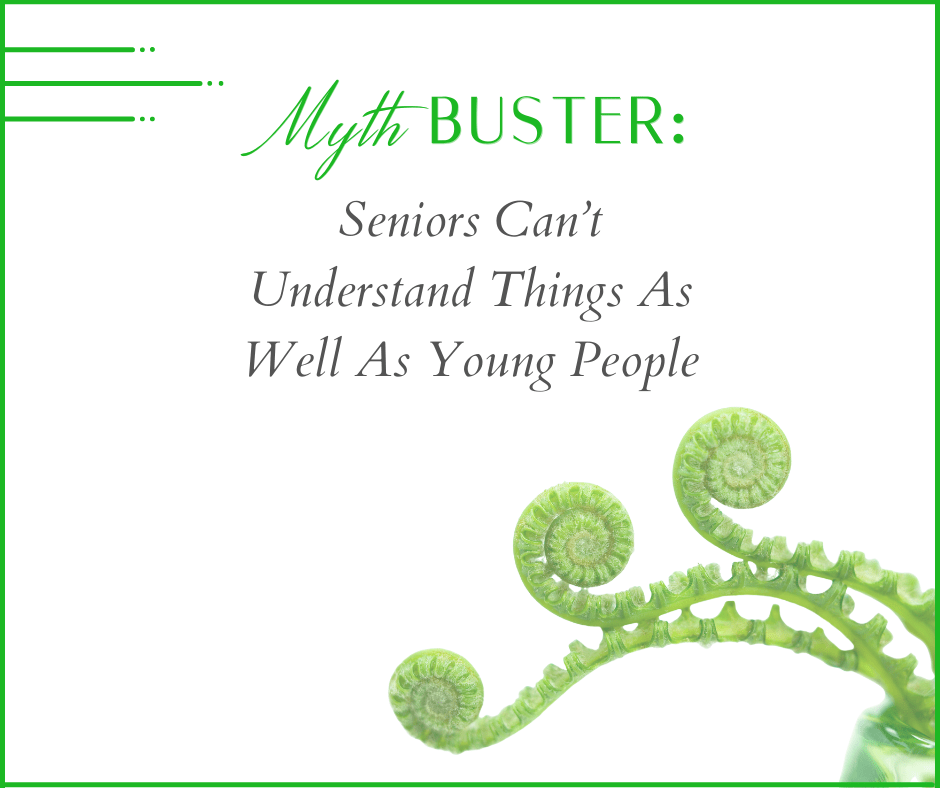My first reaction when I read the research on this was, you are kidding, right? It turns out that, sadly, it’s true. There even exists a name for this way of communicating with older adults: elderspeak. The term elderspeak first appeared in the mid-1980s, and since then has entered the lexicon as yet another way to describe discrimination against older people. What is elderspeak? It is (most often) the unconscious practice of younger people to slow down and simplify their speech patterns and word choices when talking to older folks. Younger people also turn up the volume and take on a slightly, or even overt, patronizing tone. Lovely, no?
The belief at the core of this myth is that somehow when we have some years of life and experience under our belts, and some gray hair, our brains suddenly lose the ability to understand complex sentences, or abstract concepts, or anything else beyond what we learned in fourth grade. The knowledge we acquired in graduate school, or all the technical training we received immediately evaporates and our brains turn to mush, just like the diet we should be on now. I wish I knew where this belief started, as the originator should be put in a pit with angry seniors.
How can we help dispel this myth? We need to reeducate the young, one at a time: Gently, but insistently, let the young person know we still have all our faculties, and that they may speak to you as they would to a contemporary. We must be the change we wish to see in the world.


